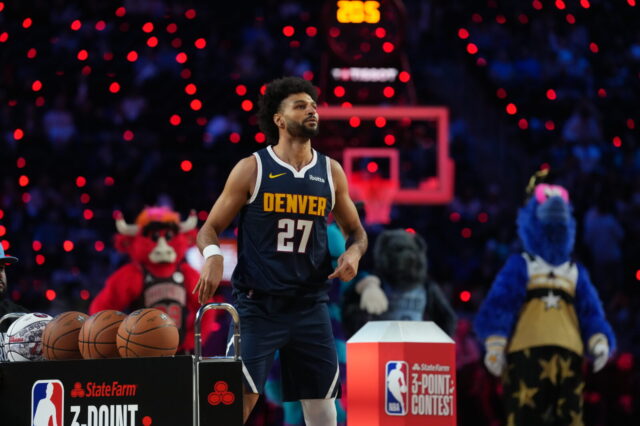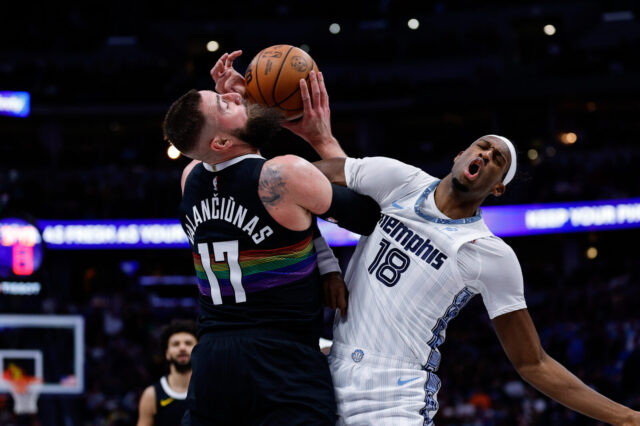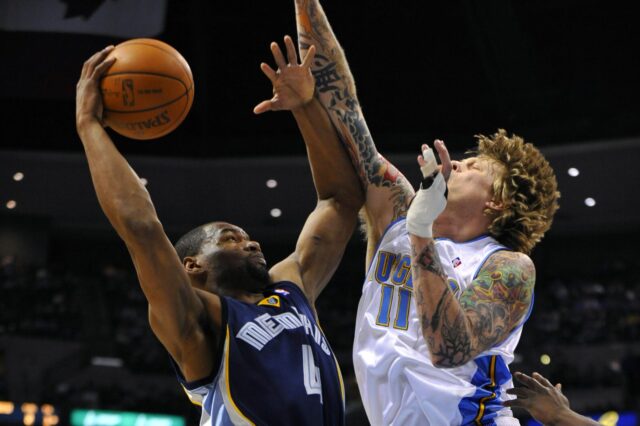In the aftermath of former Oklahoma City Thunder superstar Kevin Durant’s stunning decision to join forces with the 73-win, NBA Champion runner-up Golden State Warriors a lot of blame has gone around.
Many (including myself) have blamed Durant himself, accusing him of taking the easiest route possible to win the NBA Championship that has eluded him for his nine-year NBA career. Or as NBA legend Charles Barkley put it, "Kevin Durant is trying to cheat his way to a championship."
Others have blamed the NBA’s sudden skyrocketing salary cap – thanks to the league’s nine-year, $24 billion television contract – the proceeds from which gave every NBA team an additional $24 million to spend on player salaries this summer, an unprecedented increase. Never before, and perhaps never again, will we see championship-caliber teams like the Warriors with that type of extra cash to throw at star free agents.
Some have blamed the Thunder themselves, pointing to the team's foolish 2012 trade of Durant's fellow superstar James Harden as an example that their organization was never serious about winning a championship, something Durant possibly noted four years ago when thinking about his future.
A few have even blamed Durant’s other superstar teammate Russell Westbrook, for two reasons. One being Westbrook’s penchant for playing too much one-on-five hero ball, including during the Thunder’s 2016 conference finals matchup versus the Warriors during which the Thunder became just the 10th team in NBA history to give up a 3-1 lead and lose a playoff series. And the other being Westbrook’s own non-committal to remain in Oklahoma City past 2017.
And others have blamed the sport’s Amateur Athletic Union (AAU) and/or Team USA “culture”, the theory being that too many NBA players are chummy with their opponents outside of their respective locker rooms, and thus form bonds regardless of the NBA teams they play for. Durant, for example, played alongside the Warriors’ Stephen Curry and Andre Iguodala on the 2010 Team USA World Championship squad, just as LeBron James had played alongside his future Miami Heat teammates Dwyane Wade and Chris Bosh on the 2008 Team USA Olympic squad.
But perhaps the blame for the Durant fiasco should be directed at ourselves … the very fans, members of the NBA media circus and bloggers who are outraged at Durant's decision.
Why blame ourselves for Durant’s decision? Because we don’t just put a premium on players who win NBA Championships, we all but demand multiple championships from our stars or we place their careers in the less-than-stellar category. When we speak of “the best” players in NBA history or the NBA’s “Mount Rushmore” (i.e. the four best players of all time), only those with several championship rings need apply. You know the usual names – and the titles they’ve won – Michael Jordan (six), Magic Johnson (five), Bill Russell (11), Kareem Abdul-Jabbar (six), Larry Bird (three), LeBron James (three), Tim Duncan (five), Kobe Bryant (five), Shaquille O’Neal (four), Wilt Chamberlain (two), Hakeem Olajuwon (two), Isiah Thomas (two) and so on.
Granted, there is some legitimate justification for this. Unlike in football, baseball, hockey, soccer and other sports, basketball is the lone sport where a franchise's star is responsible for one-fifth of his team's performance, both offensively and defensively. For example, while Peyton Manning could throw for five touchdowns in an NFL game for his Denver Broncos, if his defense – which he doesn't play – gives up six touchdowns, he's a loser that day. And while Carlos Gonzales could hit three home runs in a single game for the Colorado Rockies, if his pitcher teammate gives up four he, too, is a loser that day (assuming the four homers given up generate more runs than the three homers hit, but you get the idea).
Unlike those other sports, a premier basketball player has the ability and the opportunity to affect a game on both ends of the floor, as we just witnessed when James led his Cleveland Cavaliers to a thrilling upset over the Warriors for the 2016 NBA Championship. Even though James scored a lot of points and dished out a lot of assists in the 2016 NBA Finals, it was his chase-down block against Iguodala in the waning minutes of Game 7 that helped deliver that long-awaited championship for Cleveland.
That said, like other sports winning a title in the NBA also comes down to a combination of timing, luck and circumstance. For example, if Warriors’ All-Star Draymond Green hadn’t gotten himself suspended for Game 5 of the 2016 NBA Finals, perhaps the Warriors win that game (played in Oakland) and now we’re talking about James being 2-5 in the finals as opposed to 3-4. Or if James’s teammates Ray Allen hadn’t hit that miracle three-pointer at the end of Game 6 of the 2013 NBA Finals, it’s quite possible that James’s two Heat championships become just one and Duncan has six championship rings instead of five.
Abdul-Jabbar was a one-time NBA Champion before his Los Angeles Lakers lucked into drafting Johnson first overall in 1979 (thanks to a trade that took place in 1976). How often does a number one overall pick like Johnson get to join a 47-win team coming off a playoff semifinals appearance? And then the savvy Lakers struck gold again thanks to a 1980 trade that netted them the first overall pick again in 1982, which they used to select Hall of Famer and seven-time All-Star James Worthy (who joined a two-time champion Lakers team at the time). With Abdul-Jabbar, Johnson and Worthy playing together, the Lakers would appear in five out of the next six NBA Finals and win three more championships.
Thanks to those three rings, Worthy – undoubtedly one of the best small forwards of the 1980s – was selected to the NBA’s 50 Greatest Players celebrating 50 years of NBA history in 1996. Meanwhile, superstar but ring-less small forwards like Denver Nuggets great Alex English (who led the 1980s in total scoring and appeared in eight straight All-Star Games) and Atlanta Hawks great Dominique Wilkins (who finished his career as the NBA’s ninth all-time leading scorer and was selected to nine consecutive All-Star teams) were left off the list. Today, Worthy is 98th in all-time NBA points scored whereas Wilkins is 13th and English is 18th. In fact, of the 50 players selected only 10 ended their careers without a championship ring.
And when ESPN recently put their "Top 100 of All Time" list together, the top 10 were all multiple ring winners:
1. Michael Jordan (6)
2. Kareem Abdul-Jabbar (6)
3. LeBron James (3)
4. Magic Johnson (5)
5. Wilt Chamberlain (2)
6. Larry Bird (3)
7. Bill Russell (11)
8. Tim Duncan (5)
9. Shaquille O'Neal (4)
10. Hakeem Olajuwon (2)
It’s certainly hard to argue with that list, but it’s pretty tough to leave Oscar Robertson (a 12 time All-Star who basically averaged a triple-double for his first five seasons and was a one-time champion near the end of his career) off any “Top 10” all-time list. And while I might consider giving ESPN a pass for placing Robertson at 11th all-time (although I’d probably place him over Duncan, O’Neal and Olajuwon), the world wide sports leader unforgivably placed Elgin Baylor (an 11 time All-Star and an eight-time NBA Finals runner-up) 24th behind players like Curry (a one-time champion whose career hasn’t even hit its midway point), Durant (one finals appearance, no wins), Kevin Garnett (one ring after he joined future Hall of Famers Allen and Paul Pierce in Boston) and David Robinson (two rings, but when Duncan was already the team’s best player). If Baylor wins just one of those eight NBA Finals that he played in, does he vault into the Top 15?
And lest we forget "Dr. J" Julius Erving, an All-Star in ALL 16 of his years in professional basketball, who won one NBA Championship in four NBA Finals appearances but had the misfortune of spending his first five years in the rival American Basketball Association (ABA). Erving is pro basketball's sixth all-time leading scorer and probably belongs on the Top 10 list near Robertson.
But again, it call comes down to rings. And Erving – like Robertson – won just one towards the end of his career. Baylor won none.
Which brings me back to Durant’s decision to join a 73-win juggernaut even though he’s just 27 years old and nearly another decade of great basketball ahead of him (assuming he stays healthy). Thanks to people like me, Durant is probably well aware that he is currently a member of an exclusive club that includes Barkley, Karl Malone, Allen Iverson, Steve Nash and Derrick Rose – the only players in NBA history to win a regular season MVP but not own a championship ring. This is why Barkley joined the former champion Houston Rockets in 1996, Malone joined the former champion Lakers in 2003 and Nash joined the former champion Lakers in 2012. They all wanted one more chance not to be in that club. Unlike Durant, however, Barkley, Malone and Nash were 33, 40 and 38 years old, respectively. While criticizing Durant’s decision last week, Barkley himself noted the difference between his own gravy-training to win a ring versus Durant’s:
"I have no problem with a guy at the end of his career (chasing championships). We’re talking about a guy who’s 27 years old, who’s led the league four out of probably the last five years, who’s a former MVP. I think that’s a little bit different than a guy who’s 37 years old like myself getting traded to Houston when I couldn’t play anymore. I don’t think that’s comparable. If you get traded, you get traded. But when you all get together and say ‘Let’s dominate the league’ and try to cheat your way to championships."
Of course Barkley was actually 33 years old when he was traded to Houston, was still an All-Star and wasn't 37 until his final year in the NBA. But your point is noted, Sir Charles. Durant making his move at this stage of his career has certainly never happened before (even James's 2010 move to the Heat wasn't akin to Duran't decision as the Heat weren't a 70-plus win team).
But again, this our fault. If Durant were to have stayed in Oklahoma City and never won an NBA Championship, all the statistics and All-Star Game appearances in the world wouldn't have gotten him into the "greatest ever" conversation (even though ESPN already stupidly had him in on their "Top 25" list). Sadly for Durant, however, by joining a 73-win team that really didn't need any help to win a championship, he might have cost himself from getting into that conversation anyway.
Seems to me like it's time for fans and pundits alike to redefine our criteria for who makes the "best ever" lists in the NBA. At a minimum, maybe we should wait until these great players' careers are over before opining on their place in league history.


